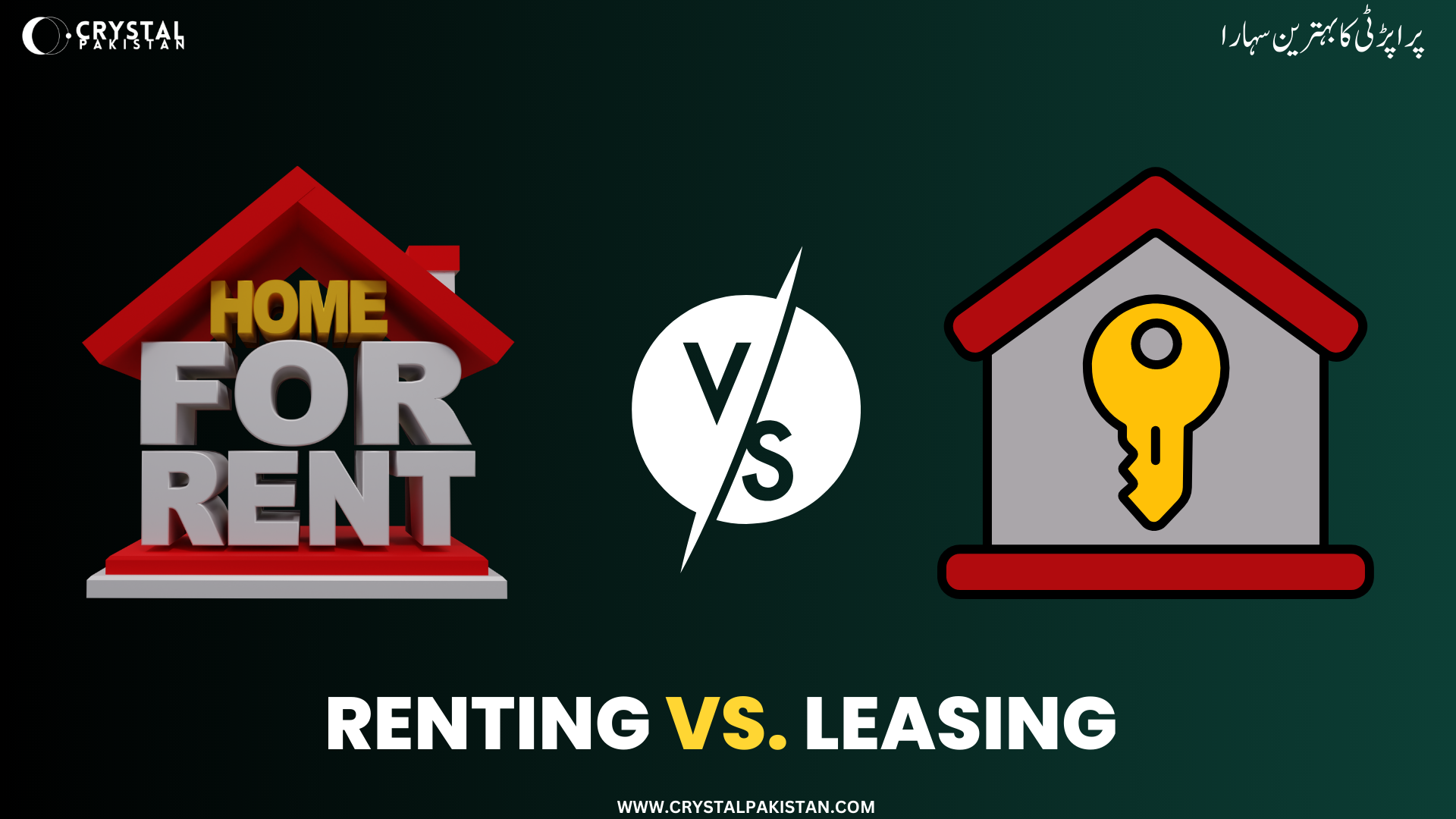Renting vs. Leasing: Which is Right for You?
When it comes to finding a place to live or acquiring a vehicle, one of the common dilemma’s individuals face is whether to rent or lease. Both options offer distinct advantages and disadvantages, making it crucial to evaluate your needs and preferences before making a decision. In this article, we will delve into the differences between renting and leasing property, and discuss their pros and cons, renting vs. Leasing: Which is Right for You?
The Future of Property Renting in Pakistan
Understanding Renting
Renting refers to the process of paying a specified amount of money, usually on a monthly basis, to occupy a property or use an item for a defined period. It is commonly associated with residential properties and can include apartments, houses, or condominiums. Renting provides individuals with the flexibility to choose a location and property that suits their needs without the long-term commitment associated with ownership.
Pros and Cons of Renting
Renting offers several advantages. Firstly, it provides flexibility, allowing individuals to change their living arrangements more easily. Renting is also suitable for those who do not wish to bear the responsibilities of homeownership, such as property maintenance and repairs. Furthermore, renting can be more affordable in the short term, as it often requires a smaller upfront cost compared to buying or leasing.
However, renting does have its downsides. One major drawback is the lack of equity accumulation. Unlike owning a property, renting does not allow individuals to build equity over time. Additionally, rental payments are typically subject to potential increases, and tenants may face limitations imposed by landlords regarding modifications or personalization of the rented space.
Understanding Leasing
Leasing, on the other hand, refers to a contractual agreement where an individual pays a predetermined amount of money to use a particular item or property for a fixed period. Leasing is commonly associated with vehicles, but it can also extend to equipment, furniture, or commercial properties. It offers individuals the opportunity to use an asset without having to purchase it outright.
Pros and Cons of Leasing
One of the main advantages of leasing is the ability to enjoy the latest models or technology without the long-term commitment associated with ownership. Leasing also typically involves lower monthly payments compared to purchasing, making it more accessible for individuals on a budget. Additionally, leasing can provide certain tax benefits for businesses.
However, leasing has its drawbacks as well. One significant limitation is the absence of ownership. Since the individual does not own the asset, they have no equity or ownership rights. Lease agreements often come with mileage restrictions and require the lessee to maintain the asset in good condition. Furthermore, terminating a lease prematurely may result in penalties or fees.
Factors to Consider
When deciding between renting and leasing, several factors should be taken into consideration:
1. Financial Implications:
Assess your budget, including upfront costs, monthly payments, and long-term financial goals.
2. Flexibility and Freedom:
Determine how important it is for you to have the freedom to change your living arrangements or upgrade to the latest models.
3. Maintenance and Responsibility:
Evaluate your willingness to handle property maintenance and repairs or adhere to lease agreement terms.
4. Long-term Goals:
Consider your future plans and whether owning a property or asset aligns with your objectives.
10 Tips for Selling Property in Pakistan
Conclusion
Renting and leasing each have their own set of advantages and disadvantages. Renting offers flexibility and affordability in the short term, while leasing provides access to assets without the long-term commitment. To make the right decision, assess your financial situation, consider your long-term goals, and evaluate the level of responsibility and freedom you desire. By carefully weighing these factors, you can determine whether renting or leasing is the best option for you.
FAQs

Q: Is renting cheaper than leasing?
A: The cost of renting and leasing varies depending on several factors such as location, property type, and asset value. It is advisable to compare the costs and terms of specific rental and lease agreements to determine which option is more affordable for your situation.
Q: Can I build equity while renting?
A: No, renting does not provide the opportunity to build equity. Equity accumulation is a benefit exclusive to property ownership.
Q: Can I modify a rented space?
A: Modifications to a rented space are typically subject to landlord approval. Some landlords may allow minor modifications, while others may have strict limitations or restrictions.
Q: Are there penalties for terminating a lease early?
A: Terminating a lease prematurely may result in penalties or fees. It is essential to review the terms and conditions of the lease agreement to understand the potential consequences.
Q: Can leasing be tax-deductible?
A: In certain cases, leasing can offer tax benefits, especially for businesses. It is advisable to consult with a tax professional or accountant to understand the specific tax implications of leasing in your situation.
